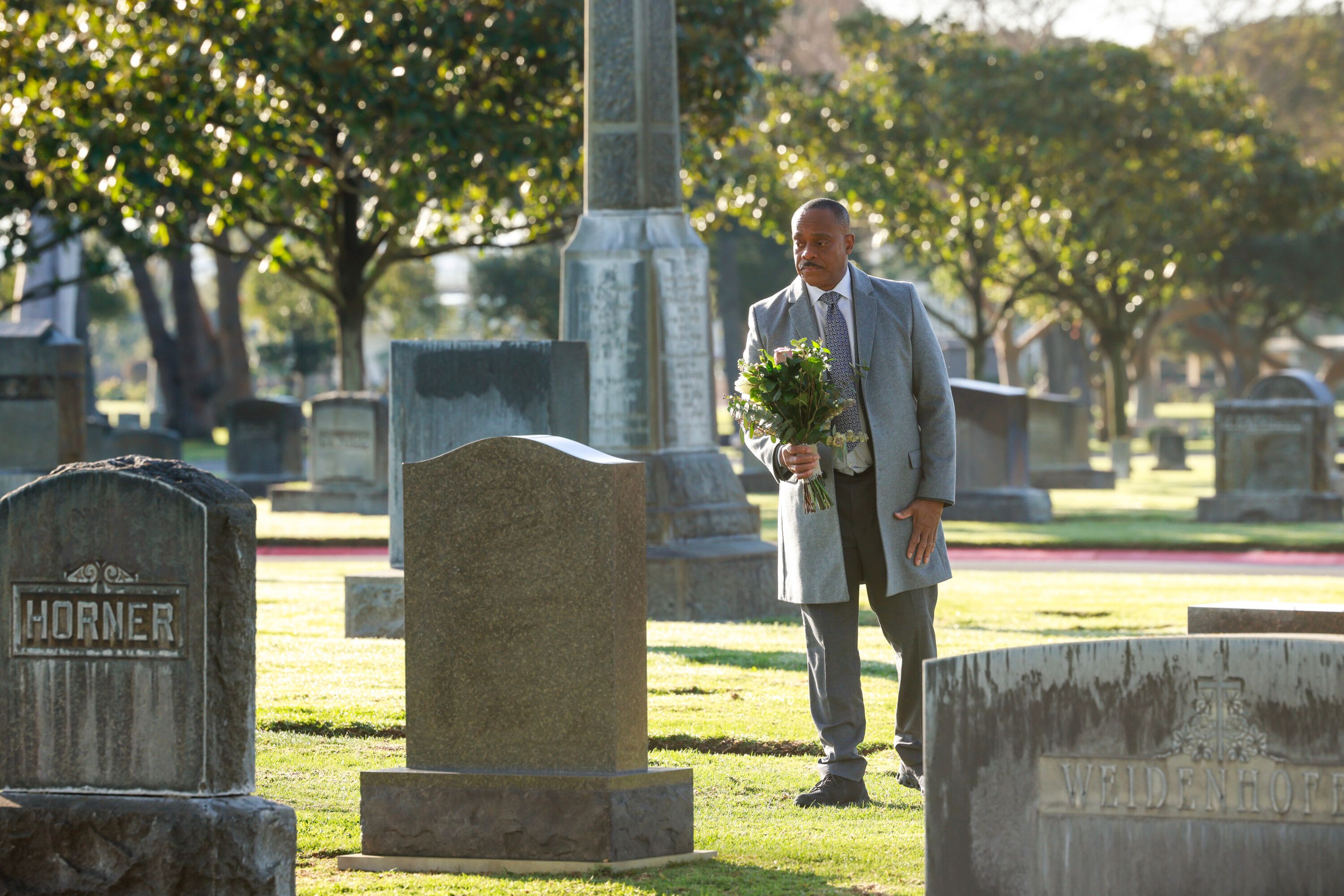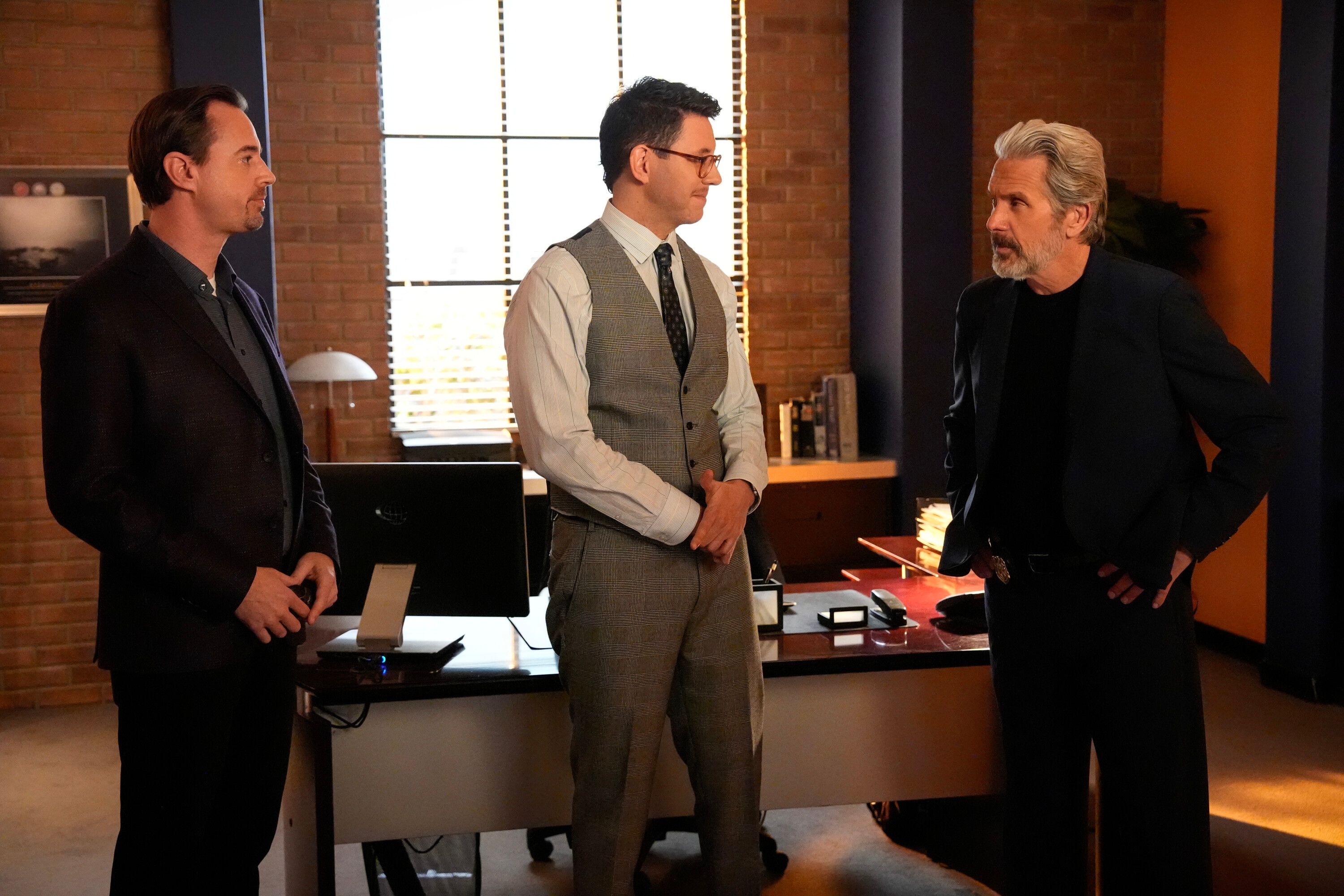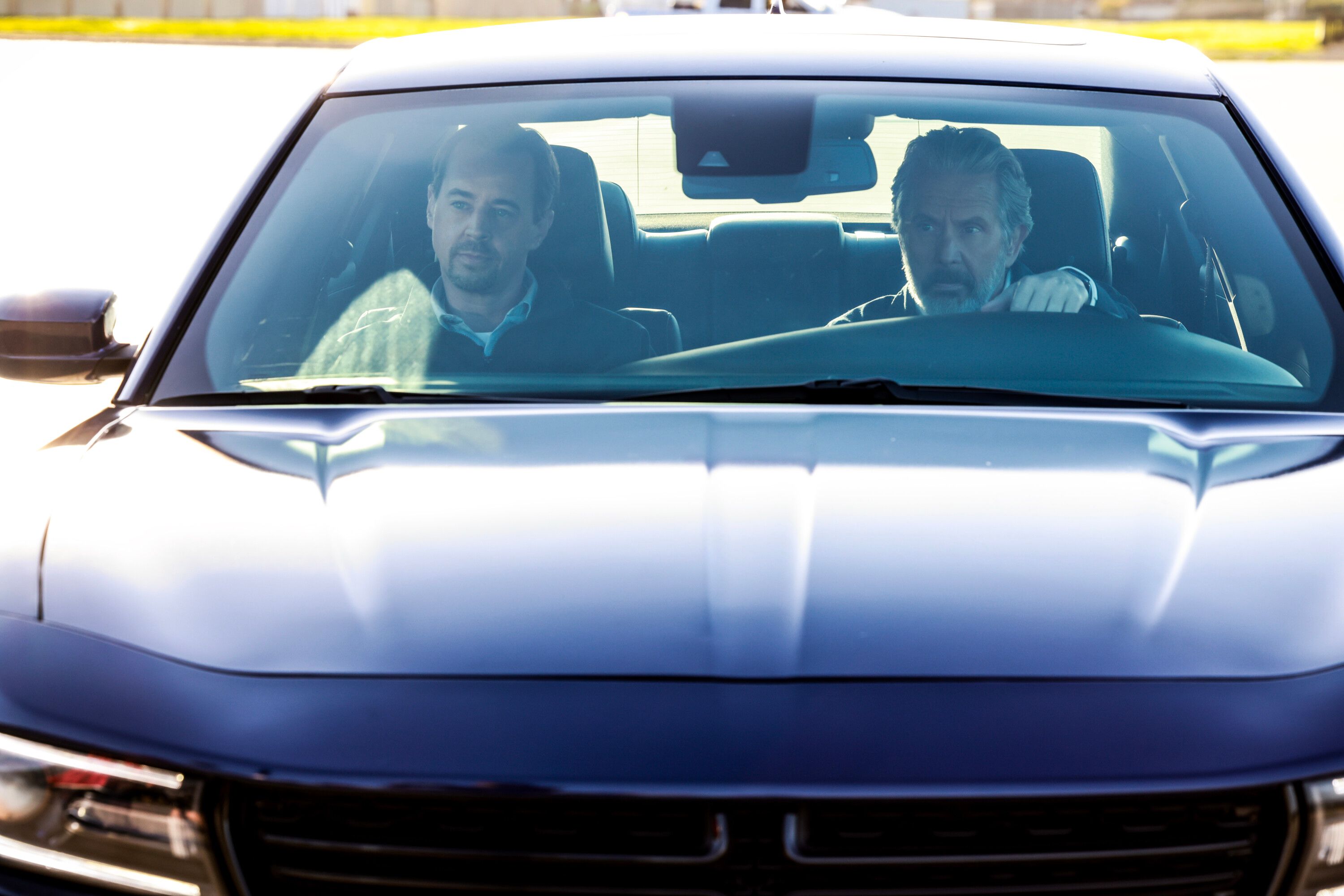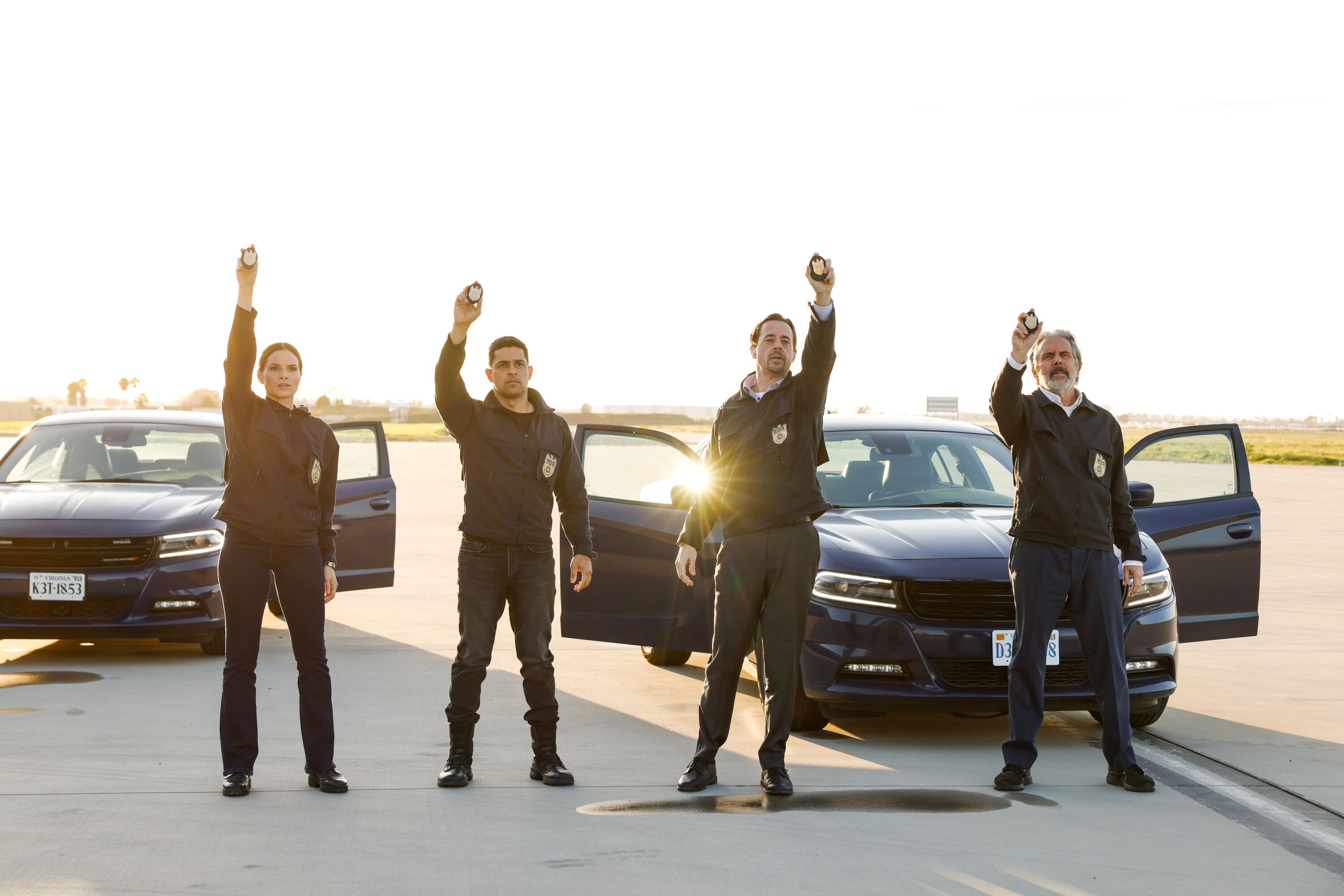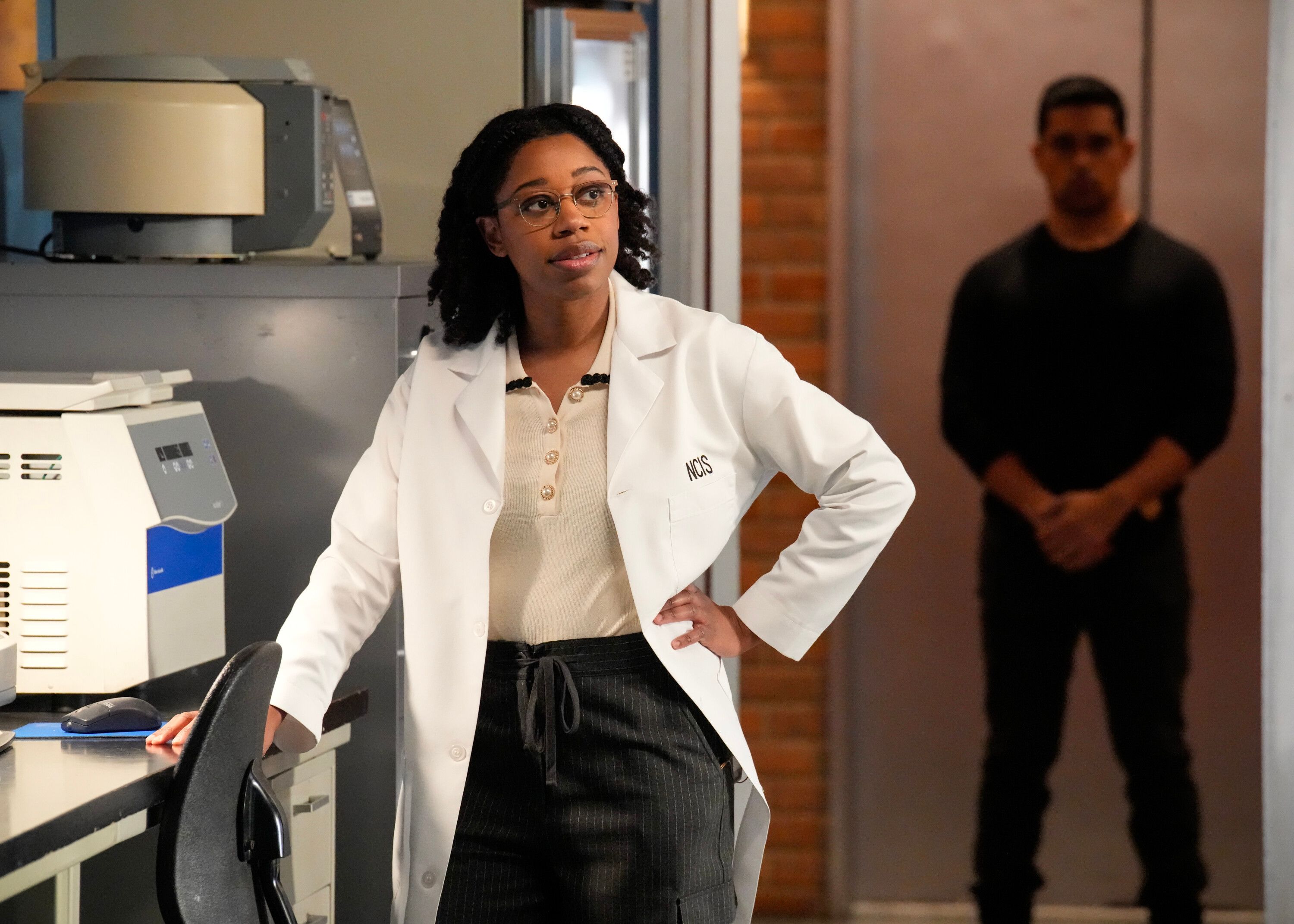
NCIS Season 21, Episode 7, “A Thousand Yards” packs plenty of fan service into the CBS franchise’s 1,000th episode – and it almost all works.
The 1,000th episode of the NCIS franchise is an occasion, and that’s what NCIS Season 21, Episode 7, “A Thousand Yards” feels like. It’s an episode more designed to celebrate the milestone than to move the TV show forward in any way. There’s a tremendous amount of references packed into 42 minutes as the script by Christopher J. Walid stretches — unsurprisingly — all the way back to the very first NCIS story, “Yankee White.”
Fans who have been watching since then will delight in a tremendous number of references and callbacks to the history of the franchise, as well as some high-profile guest appearances. However, “A Thousand Yards” almost looks backward too much, as its central plot frays once the true villain is revealed. The story sometimes feels like it’s fitting around the special event, but that likely won’t diminish the entertainment value for those who are able to follow along.
NCIS Makes the Franchise’s 1,000th Episode Massive
The Milestone Sets up Very High Stakes
NCIS Season 21, Episode 7, “A Thousand Yards” uses the familiar TV template of making a milestone episode’s stakes as big as possible. It starts with Director Leon Vance being shot while visiting his wife Jackie’s gravesite — an interesting choice since some viewers wondered if Rocky Carroll was leaving NCIS in Season 20. An attempt on Vance’s life would be enough for an episode, but then “A Thousand Yards” also throws in a series of explosions, a bunch of fake attack alerts and a computer virus. Four dramatic plot points winds up feeling like a little too much, as the plot gets compressed the longer the episode goes on.
However, the one confirmed victim being the director of NCIS provides an excuse for the show to put all hands on deck. CBS’ promotion for this episode included revealing the NCIS: Los Angeles and NCIS: Hawai’i crossover appearances well in advance, plus the return of Joe Spano as fan-favorite character Tobias Fornell. The story also brings back Curtis Hubley (played by J. Claude Deering), technology executive Fletcher Voss (portrayed by Bones alum T.J. Thyne) and Vance’s son Jared Vance (Spence Moore II). Obviously, highlighting these known names is a great way to get attention from even casual NCIS fans, but one wonders if the episode would have been better if at least one of them was a surprise. The reaction to a grumpy Fornell, for example, would have been even bigger if viewers hadn’t known he was going to turn up.
The longer-tenured main cast members, however, also get their chance to shine. “A Thousand Years” is able to avoid the pitfall of getting distracted by its guest stars. Despite spending most of the episode in a hospital bed, Rocky Carroll is a standout; the audible emotion in Vance’s voice as he speaks to Jackie and then to Jared is very moving. Carroll’s performance here is a reminder of why he should stay on NCIS as long as he wants to; he’s a great fit in that fatherly role, both literally and metaphorically. Sean Murray also has an interesting arc when Vance names McGee the acting NCIS director; as McGee himself notes, he’s come a long way from being a “probie” to being temporarily in charge of the entire agency. And the script makes good use of Brian Dietzen, utilizing Jimmy Palmer’s medical expertise as a more interesting way to provide the expected update on Vance’s health, instead of the usual dry scene with a generic ER doctor. All of the actors involved show up for this milestone episode; it’s the script that hits bumps in the road.
Does NCIS Season 21, Episode 7 Have Too Much Nostalgia?
Some Plot Points Fall Flat In Service of History
Similar to the NCIS: Los Angeles series finale, serving the fans is more important than the story in “A Thousand Yards.” That works in some ways and it doesn’t in others. The biggest misstep comes with the episode’s villain, because she’s more a plot device to make the connection to “Yankee White” than an actually interesting character. Audiences know something’s up with Jared’s girlfriend Lindsey as soon as it comes out that he’s never met her in person; “love interest turns out to be a killer” is one of the oldest TV crime drama tropes. The character of Lindsey is also so flat that she never feels like a legitimate threat.
Then once her plot is unspooled, it doesn’t quite line up with the rest of the episode. Kasie Hines’ research suggests that Lindsey is a veterinary assistant who only got her firearms training a few months earlier, after meeting Voss on an Internet message board and being given tons of fake anti-NCIS propaganda. However, Lindsey is later revealed to be the daughter of Leonard Rish, the would-be assassin shot by Agent Leroy Jethro Gibbs in “Yankee White” (as shown in recycled footage), who has her own grudge against NCIS. This switch from pawn to mastermind isn’t convincing — in part because Lindsey has no personality, but also because the prior scene muddles her motivation. Audiences are left to fill in the blanks of Voss and Lindsey’s connection, and the chronology of how her plan came together. A simpler approach would have been to reverse the roles and have Lindsey orchestrating Voss planting a virus on Air Force One; that wouldn’t be novel either, but it would be more effective and still get to the same conclusion.
In contrast, the final moments of the episode with Vance and Jared discussing NCIS as a whole are clearly fan service, but it’s the kind of scene that doesn’t claim to be anything but a sentimental moment for those longtime viewers. The montage of clips showcasing agents helping other agents and people in need takes care to show all of the most well-known characters, including Gibbs and spinoff-bound Tony DiNozzo and Ziva David, plus footage from all of the NCIS series — including NCIS: New Orleans. It’s very obvious that these minutes are meant to pay tribute to all the characters of the NCIS universe and by extension, all the people who’ve made the shows possible. That’s totally fine since the montage is a button at the end of the episode; it’s not trying to fit into the plot. The weakness of “A Thousand Yards” is trying to form its storyline around the callbacks to the NCIS pilot, instead of telling a story that the callbacks naturally fit into.
“A Thousand Yards” is fun to watch and viewers will come away from the hour smiling and wondering if the franchise will make it to 2,000 episodes. It’s certainly done with love and care not just for the flagship show, but for the entire franchise. If it had cut back on its references just slightly, however, it would have been a stronger adventure. That and the use of an underdeveloped, uninteresting villain make this just a so-so entry in NCIS Season 21. Yet audiences aren’t going to be remembering its plot; they’re going to be talking about that montage, whether or not McGee will really become the next NCIS director, and getting to see fan-favorites again. NCIS Season 21, Episode 7 accomplishes its mission of making viewers nostalgic, despite having its fair share of flaws.
